Related Research Articles

Te Keepa Te Rangihiwinui was a Māori military commander and noted ally of the government forces during the New Zealand Wars. First known as Te Rangihiwinui, he was later known as Te Keepa, Meiha Keepa, Major Keepa or Major Kemp.

The 19th New Zealand Parliament was a term of the New Zealand Parliament. It opened on 24 June 1915, following the 1914 election. It was dissolved on 27 November 1919 in preparation for 1919 election.
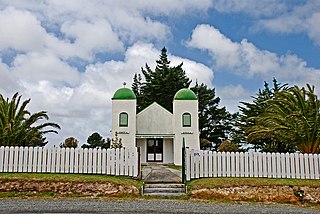
Te Aupōuri is the second northernmost Māori iwi, located north of Kaitaia, Northland, New Zealand, a region known as the Te Hiku o te Ika. The iwi is one of the six Muriwhenua iwi of the far north of the North Island.
Waitaha, an early Māori iwi, inhabited the South Island of New Zealand. They were largely absorbed via marriage and conquest – first by the Ngāti Māmoe and then by Ngāi Tahu – from the 16th century onward. Today those of Waitaha descent are represented by the Ngāi Tahu iwi. Like Ngāi Tahu today, Waitaha was itself a collection of various ancient iwi. Kāti Rākai was said to be one of Waitaha's hapū.
The Southern Maori by-election of 1922 was a by-election during the 20th New Zealand Parliament. It was held on 25 January 1922, i.e. before the 1922 general election, which was held on 7 December.

Patricia Hekia Parata is a former New Zealand public servant, diplomat, and politician.
Southern Maori was one of New Zealand's four original parliamentary Māori electorates established in 1868, along with Eastern Maori, Western Maori and Eastern Maori. In 1996, with the introduction of MMP, the Maori electorates were updated, and Southern Maori was replaced with the Te Tai Tonga and Te Puku O Te Whenua electorates.
Western Maori was one of New Zealand's four original parliamentary Māori electorates established in 1868, along with Northern Maori, Eastern Maori and Southern Maori. In 1996, with the introduction of MMP, the Maori electorates were updated, and Western Maori was replaced with the Te Tai Hauāuru and Te Puku O Te Whenua electorates.
Henare Whakatau Uru was a New Zealand politician. He was the Reform Party Member of Parliament for Southern Maori from 1922 to 1928.
John Hopere Wharewiti Uru, sometimes known as Billy Uru, was a New Zealand sportsman and politician. He represented Canterbury at both cricket and rugby union, and was an Independent Member of Parliament for Southern Maori.
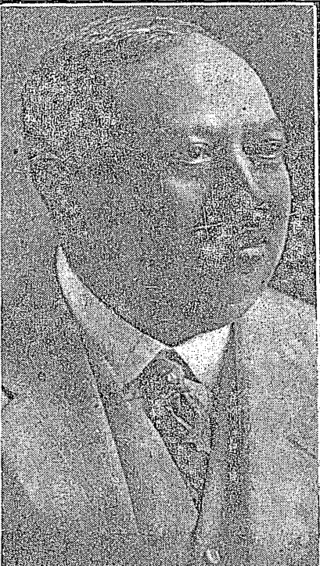
Taare Rakatauhake Parata, also known as Charles Rere Parata, was a Māori and a Liberal Party Member of Parliament in New Zealand.
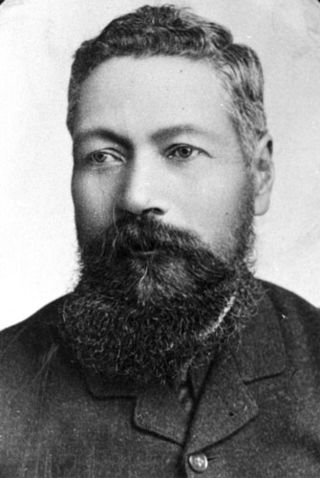
Tame Parata, also known as Thomas Pratt, was a Māori and a Liberal Party Member of Parliament in New Zealand.

Wiremu Te Kākākura Parata, also known as Wi Parata was a New Zealand politician of Māori and Pākehā descent. During the 1870s he was a member of the House of Representatives and a Minister of the Crown.
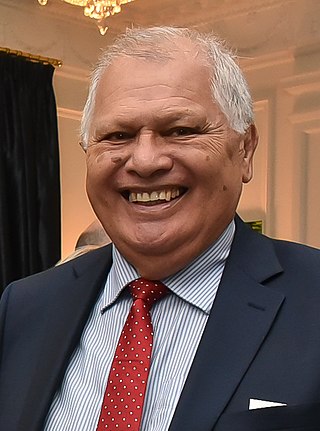
Sir Harawira Tiri Gardiner was a New Zealand soldier, public servant, and writer. He was Māori, of Ngāti Awa, Ngāti Pikiao, Whakatōhea, and Te Whānau-ā-Apanui descent.
Katherine Te Rongokahira Parata (1873–1939) was a New Zealand woman of mana. Of Māori descent, she identified with the Ngāti Pikiao, Ngāti Pūkenga and Te Arawa iwi. She was born in Tauranga, Bay of Plenty, New Zealand in 1873. Two of her brothers, Albert and Ernie Asher, played professional rugby league, and another brother John became a Ngati Pukenga and Ngati Pikiao leader. In 1896, she married Taare Parata. Her husband would later be elected as the representative of the Southern Maori electorate; at the time of their wedding, her father-in-law, Tame Parata, was the electorate's current representative. Ned Parata, a rugby union administrator, was her brother-in-law.
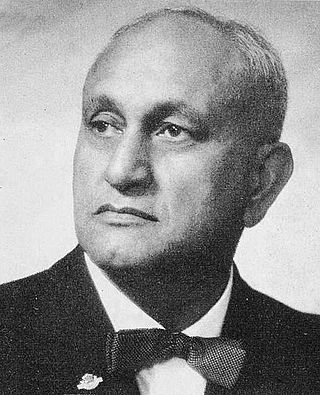
Hānara Tangiāwhā Te Ōhakī "Arnold" Reedy was a New Zealand tribal leader, farmer and soldier. Of Māori descent, he identified with the Ngāti Porou iwi. He was born in Whareponga, East Coast, New Zealand, on 16 August 1903. He was the eldest son of Materoa Reedy, née Ngarimu, and John Marshall Reedy, himself the eldest son of Thomas Tyne Reedy, an Irishman, and Mihi Takawhenua Ngawiki Tuhou. Hekia Parata, a former member of Parliament, is his granddaughter. He was appointed an Officer of the Order of the British Empire, for services to the Māori people, in the 1970 Queen's Birthday Honours.
Hōne Taare Tīkao was a New Zealand tribal leader, scholar and politician. Of Māori descent, he identified with the Ngāi Tahu iwi. He was born on Banks Peninsula, New Zealand in about 1850.
Parata is a Māori surname. It is a transliteration of the English word "brother" or "brothers".
Wiremu Teihoka "Ned" Parata was a New Zealand rugby union administrator.
The 1885 Southern Maori by-election was a by-election held on 10 June 1885 in the Southern Maori electorate during the 9th New Zealand Parliament.
References
- ↑ "By-election … Mr Parata defeated". Auckland Star . 22 February 1918.
- ↑ "Southern Maori Election". The Lake District Press. 28 February 1918.